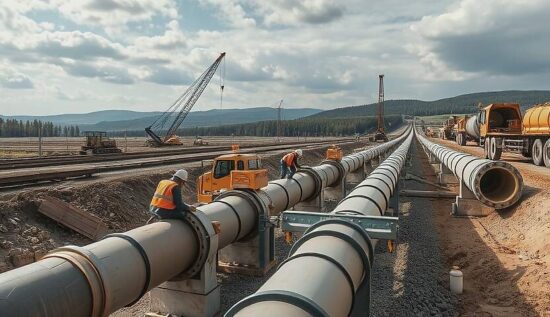Hungary and Serbia are accelerating the construction of a new pipeline that will supply Serbia with Russian oil through the Druschba pipeline system, Hungarian Foreign Minister Peter Szijjarto announced. The decision comes in the wake of the latest US sanctions against Russia and Ukraine’s refusal to transmit Russian gas to other countries.
In October 2022, Hungary and Serbia agreed to build a new pipeline that would supply the Balkan country with Russian Ural oil through the Druschba system. Szijjarto wrote on Facebook that a recent phone call with Serbian Energy Minister Dubravka Djedovic Handanovic showed that the energy crises of the past years, often politically caused, have demonstrated the need for countries to work together to ensure the security of their energy supply.
“After drawing the conclusions from the last weeks, we agreed today (..) to accelerate our joint investments in energy and energy security, including the construction of a new power connection between the power grids of the two countries and the construction of the first joint pipeline” the Hungarian top diplomat stated.
He called Belgrade a strategic partner and said that without Serbia, there would be no energy security for Hungary and vice versa. Szijjarto also criticized the actions of some global players, saying that their sanctions and restrictions can create serious problems and seem to disregard the interests of their allies.
Serbia, heavily dependent on Russian oil imports through Croatia, has been affected by the Western sanctions against Moscow over the Ukraine conflict. The restrictions, in place since 2022, include an embargo on Russian oil shipped by sea, along with a price cap of $60 per barrel for oil delivered by other means.
The Druschba network, one of the world’s longest pipeline networks, delivers oil from Russia approximately 4,000 kilometers to refineries in the Czech Republic, Germany, Hungary, Poland, and Slovakia.
The latest US sanctions against Russia, announced last week, have worsened the situation in Serbia’s oil supply. The restrictions target two major oil suppliers – Gazprom Neft and Surgutneftegaz – as well as their subsidiaries, including Naftna industrija Srbije (NIS), responsible for Russian oil deliveries to Serbia and neighboring European countries.
More than 30 service providers for oil fields, over 180 ships transporting Russian oil, and multiple insurance companies have been blacklisted. Szijjarto warned that the comprehensive restrictions could lead to a significant increase in fuel prices in Hungary and other countries in the region.





